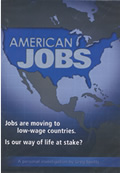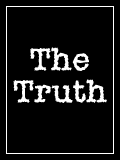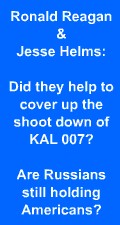Other
Roberts
Articles:
WHAT IS A "VETERAN"
Craig
Roberts
November 9, 2004
NewsWithViews.com
November 11th, what we now call "Veterans Day," was originally called Armistice Day. It celebrated the end of World War I, when the guns fell silent across the Western Front on the 11th day, on the 11th hour of 1918. It is not a day to celebrate war, but to celebrate peace--and remember those for fought and died for it. I want to take this opportunity, as a veteran, to remember and to help those who enjoy this hard-fought peace to understand.
As a veteran, and as a military historian, I would like to define exactly what a veteran is.
First, those who have served in the armed forces know what it is like to do a job that is extremely difficult and dangerous, underpaid, and under-recognized. Still, the job has to be done and someone has to do it.
When serving, the military person does more work before 9 a.m. than most civilians do all day. There is no punch clock or time card, and the work days are as long and as many without a break as needed to accomplish the mission. There is no union, no shop steward, and no mandatory break time. It is difficult to describe in few words what a veteran may have done while in uniform.
Perhaps it would be easiest to say that a Veteran knows what it is really like to:
Wade muddy swamps and rice paddies carrying 80-100 pounds of gear in steaming tropical heat;
Crawl across bloodstained sandy beaches of some Pacific atoll no one had ever heard of;
Slide 300 feet below the surface of the sea in a steel tube, waiting silently to see if the enemy has discovered you and will destroy you, and you will disappear with no one to know your fate;
Wade through frozen snow banks, or crouch in freezing fox holes at 20 below zero in a night where you are surrounded and outnumbered by an enemy intent on killing you at dawn;
Flying 20,000 feet above unfriendly territory, waiting for enemy fighters to appear, flak to burst around you, or a warning tone on the instrument panel screaming at you that a missile has locked on to your aircraft;
Being bruised and beaten as you sit in an armored box, rocking and reeling across blazing sand dunes, knowing that one anti-tank rocket could kill you and everyone else in your vehicle;
Putting your eye to a telescopic sight on a high-powered rifle, sweat stinging your eyes as you lay for hours in 130 degree heat in a jungle treeline, putting the crosshairs on the form of an enemy soldier and squeezing the trigger, knowing that you are personally going to end a life.
Moving huge artillery shells as quickly as possible to load the gun that is being fired as fast as possible to support your fellow troops in need, somewhere out there out of sight whose only presence is that frantic voice on the radio calling for a fire mission�right now, right here, and as quickly as possible;
Driving the trucks that drive the roads that bring the much needed ammo, chow and water to the guys who are doing all the above;
Sitting in a deep hole somewhere in South Dakota, waiting and waiting for what you hope never comes, with your attention always focused on the button that could launch a terrible weapon that could destroy thousands of lives in a land far away�men, women and children of a country you know little about;
As surface sailors and merchant marine, sailing in ships, small and gigantic, on a very big sea, knowing you are the biggest target on the board, and that if attacked and sunk, swimming home is not an option;
Serving in small cutters as Coast Guardsmen, in peace and war, guarding our coasts and answering the call overseas when needed;
And in the longest war in American history, the Cold War, walking an outpost in the heat or freezing cold in places around the world and training, and training, and training for a war you prayed would never come, or manning a radar station or a ready-fighter on the DEW line somewhere in the frozen north, or staring across the Berlin Wall or the Korean 38th parallel at enemy soldiers who are being trained and prepared to kill you at any time;
And always knowing that for other than your friends and family, you were doing a thankless job, one that very few people wanted, and in many cases due to politics, were even condemned for.
But as they say, someone had to do it, and the Veterans are the men and women who stepped forward. And history has proven over and over that serving one�s country, whether for one hitch or for a career, is The Most Honorable Profession. But a profession most misunderstood in today�s civilian world, and the world of yesteryear as well.
Rudyard Kipling, Poet Laureate of England in the Victorian Days, said it best in his poem, �Tommy�:
�I went into a public-�ouse to
get a pint of beer,
The publican he ups and says �we serve
no red coats here.�
The girls be�ind the bar they laughed
and giggled fit to die,
I outs into the street again an� to myself
sez I:
-
Oh it�s Tommy this and Tommy that, an� Tommy, go away�
-
But it�s �Thank you, Mister Atkins,� when the band begins to play�
�I went into a theatre as sober
as could be,
They gave a drunk civilian room, but hadn�t
none for me;
They sent me to the gallery or round the
music halls,
But when it comes to fightin�, Lord! They�ll
shove me in the stalls!
-
But it�s Tommy this, an� Tommy that, an� �Tommy, wait outside�;
-
But it�s �Special train for Atkins� when the troopship�s on the tide.�
Yes, makin� mock o�uniforms that
guard you while you sleep
Is cheaper than them uniforms, an� they�re
starvation cheap;
An� hustlin� drunken soldiers when they�re
goin� large a bit
Is five times better business than paradin�
in full kit.
-
Then it�s Tommy this, and Tommy that, an �Tommy ow�s your soul?�
-
But it �Thin red line of heroes when the drums begin to roll.�
We aren�t no thin red heroes, nor
we aren�t no blackguards too,
But single men in barracks, most remarkable,
like you;
An� if sometimes our conduck isn�t all
your fancy paints,
Why, single men in barracks don�t grow
into plaster saints;
-
While it�s Tommy this and Tommy that, an� �Tommy, fall be�ind�
-
But it�s �Please to walk in front, sir,� when there�s trouble in the wind.
For it�s Tommy this, an� Tommy
that, an� �Chuck him out, the brute!�
But it�s �Saviour of his country� when
the guns begin to shoot;
An� it�s Tommy this, an� Tommy that, an�
Anything you please;
An� Tommy ain�t a bloomin� fool�you bet
that Tommy sees!"
(length abbreviated)
It is days such as this that finally give credit to those who have served, and at the same time remind us what a terrible toll war can have. It must always be remembered that the mission of the military is NOT to go to war, but to do all that is possible by being strong and trained and ready to make sure no one wants to go to war with us. The mission of our armed forces is not war, it is peace. It is the sheep dogs who keep the wolves away from the sheep, and our world if full of wolves.
Finally, we must remember the sacrifices our brave warriors have made through the 228 years since 1776 that this country has been in existence. The sacrifices of our soldiers and sailors and Marines and airmen and coast guardsmen and merchant marine in places such as Kings Mountain, Bunker Hill, Ticonderoga, New Orleans, Tripoli, the Mexican Border, Gettysburg, Shiloh, Vicksburg, Vera Cruz, Cuba, Manila Bay, the Philippines, Belleau Wood, Chateau Thierry, Normandy, the Bulge, the Rhine, the North Atlantic,Guadalcanal, Tarawa, Midway, Saipan, Okinawa, the Chosin Reservoir, Inchon, DaNang, Con Thien, Khe Sanh, the Iron Triangle, the Parrot�s Beak, the Mekong, Beirut, Grenada, Panama, Desert Storm, Somalia, Afghanistan, and hundreds of other places.
And now Iraq.
And there will be more.
Finally, I would like to mention a battle that occurred long ago: the Battle of Thermopylae, wherein 300 Spartan warriors kept at bay the entire Persian army of over a million men for five days. They did it by standing in a gap in a narrow mountain pass, shoulder to shoulder, forcing the enemy to fight one-on-one, face-to-face, due to the terrain.
King Xerxes, the Persian commander, sent a messenger to the Spartans: "Surrender now, or tomorrow the arrows will fly so thick as to block out the sun." King Leonidas of the Spartans sent this meesage back: "So much the better. We'd rather fight in the shade."
In the end, the Spartans all died in combat, because a civilian traitor told King Xerxes, about a little known mountain path that would allow the Persians to get behind the Spartans, surrounding them.
But the Spartans came when their nation called, and bravely stood against overwhelming odds, and gave the ultimate sacrifice for their country.
It is now inscribed on a monument at the pass at Thermopylae:
Go tell the Spartans, Stranger passing by, That here, obedient to their laws,
We lie.
Let US never forget our veterans!
God Bless.
� 2004 Craig Roberts - All Rights Reserved
Order Craig Robert's book:
The
Medusa File
Craig Roberts has lived a life many people only dream about. He is an internationally published author of over a dozen books, has written hundred of magazine and newspaper articles, appeared in several shows on The History Channel, written for Time-Life books, hosted a radio talk show and appeared on scores of radio talk shows. He is a US Marine Vietnam combat veteran, where he served in a line company and as a Marine sniper--hence his extensive writing on marksmanship, sniping, weapons and the 2nd Amendment.
He is also a career police officer, having retired in 1996 with over 26 years of service with the Tulsa Police Department, where he served in patrol division, undercover assignments, SWAT (Special Operations), and as a police helicopter pilot with the Air Support Unit for 14 years. He has had a dual career, while serving as a police officer he continued his military career in the reserves where he completed 30 years total service in 1999 as an infantry and intelligence officer.
He retired at the rank of lieutenant colonel in the Army Reserve. Craig is a highly decorated combat veteran, and holds four medals from the police department including the Tulsa Police Department's second highest award, the Medal of Valor. Craig is the author of The Medusa File: Crimes and Coverups of the US Government, Kill Zone: A Sniper Looks at Dealey Plaza, and One Shot--One Kill: America's Combat Snipers among others.
Websites: www.riflewarrior.com
and www.chouteautel.com/~centurion007/
E-Mail: craig@riflewarrior.com
When serving, the military person does more work before 9 a.m. than most civilians do all day. There is no punch clock or time card, and the work days are as long and as many without a break as needed to accomplish the mission.












